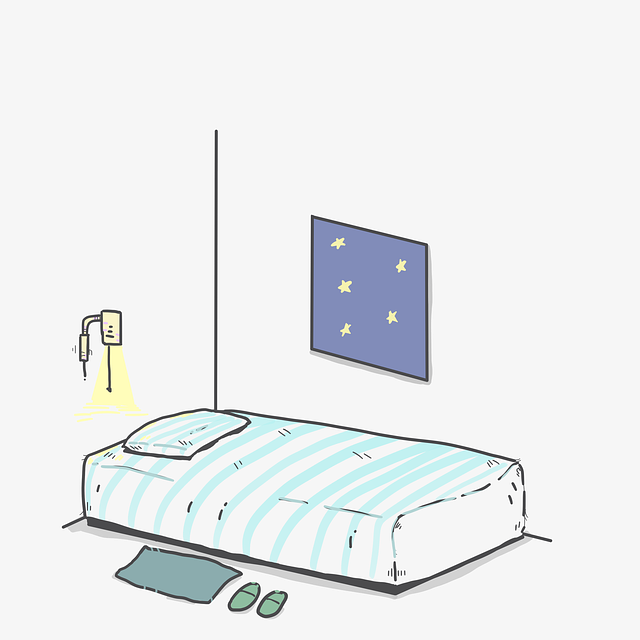Sleep is often viewed as a passive activity—a time when our bodies rest and recharge. However, beneath the surface lies a complex and dynamic process that plays a pivotal role in maintaining emotional balance and mental well-being. In recent years, researchers have uncovered compelling evidence highlighting the intricate connection between sleep, emotional regulation, and mental health. Understanding this relationship is not only essential for fostering personal resilience but also for addressing widespread challenges such as anxiety, depression, and chronic stress.
The Science of Sleep: More Than Just Rest
At its core, sleep is a biological necessity. It is divided into several stages, including rapid eye movement (REM) sleep and non-REM sleep, each serving distinct functions. During these cycles, the brain engages in critical processes like memory consolidation, toxin removal, and neural repair. But beyond these physiological tasks, sleep acts as a regulator for emotions. When we are well-rested, our brains can effectively process information, manage stress, and respond to challenges with clarity and composure. Conversely, poor or insufficient sleep disrupts these mechanisms, leaving us vulnerable to emotional instability and mental health issues.
Research has shown that sleep deprivation affects the brain’s prefrontal cortex—the region responsible for decision-making, impulse control, and emotional regulation. Without adequate rest, this area struggles to communicate effectively with the amygdala, which governs emotional responses such as fear and anger. As a result, individuals may experience heightened sensitivity to negative stimuli, difficulty calming down after stressful events, and an overall decline in emotional resilience.
Emotional Regulation: How Sleep Influences Our Mood
Emotional regulation refers to our ability to manage and respond appropriately to feelings. This skill is crucial for navigating life’s ups and downs, from handling minor frustrations to coping with major setbacks. Sleep plays a foundational role in this process by ensuring that our brains operate optimally. For instance:
- Reducing Reactivity : Well-rested individuals tend to exhibit lower levels of reactivity to emotionally charged situations. They are better equipped to pause, reflect, and choose thoughtful responses rather than reacting impulsively.
- Enhancing Positivity : Adequate sleep fosters a more positive outlook on life. Studies suggest that people who get sufficient rest report higher levels of happiness and satisfaction compared to those who are sleep-deprived.
- Strengthening Resilience : Sleep bolsters psychological resilience, enabling individuals to bounce back from adversity more effectively. This is particularly important during periods of high stress or significant change.
On the flip side, lack of sleep exacerbates emotional dysregulation. Have you ever noticed how even small inconveniences feel insurmountable after a night of poor sleep? This phenomenon underscores the profound impact of sleep on mood and behavior. Chronic sleep deprivation can lead to persistent irritability, mood swings, and an increased risk of developing mood disorders like anxiety and depression.
The Link Between Sleep and Mental Health
The interplay between sleep and mental health is bidirectional. While poor sleep can contribute to mental health problems, existing mental health conditions often interfere with sleep quality, creating a vicious cycle. Here’s a closer look at some key connections:
- Depression and Sleep : Insomnia and hypersomnia (excessive sleeping) are common symptoms of depression. Disrupted sleep patterns can worsen depressive episodes, while improving sleep hygiene has been shown to alleviate symptoms in many cases.
- Anxiety and Sleep : Anxiety frequently manifests as racing thoughts and hyperarousal, making it difficult to fall asleep or stay asleep. At the same time, sleep deprivation amplifies feelings of worry and apprehension, further fueling the cycle of anxiety.
- PTSD and Nightmares : Individuals with post-traumatic stress disorder (PTSD) often experience nightmares and fragmented sleep, which hinder their ability to recover emotionally. Addressing sleep disturbances is a critical component of PTSD treatment.
- Bipolar Disorder : Sleep irregularities are closely tied to bipolar disorder, where manic episodes may involve reduced need for sleep, while depressive phases often include excessive sleepiness. Stabilizing sleep patterns can help mitigate the severity of mood swings.
Practical Strategies for Better Sleep and Emotional Well-Being
Given the undeniable link between sleep and mental health, prioritizing good sleep hygiene should be a cornerstone of any wellness routine. Here are some actionable steps to improve both sleep quality and emotional regulation:
- Establish a Consistent Sleep Schedule : Go to bed and wake up at the same time every day, even on weekends. This helps regulate your body’s internal clock and promotes deeper, more restorative sleep.
- Create a Relaxing Bedtime Routine : Engage in calming activities before bed, such as reading, meditating, or taking a warm bath. Avoid screens and stimulating content at least an hour before bedtime.
- Optimize Your Sleep Environment : Ensure your bedroom is conducive to sleep by keeping it cool, dark, and quiet. Invest in a comfortable mattress and pillows to enhance comfort.
- Limit Stimulants and Alcohol : Caffeine and nicotine can interfere with sleep onset, while alcohol may disrupt sleep architecture. Try to avoid these substances close to bedtime.
- Manage Stress Effectively : Practice mindfulness techniques, journaling, or deep breathing exercises to reduce stress and promote relaxation.
- Seek Professional Help if Needed : If you consistently struggle with sleep despite making lifestyle changes, consult a healthcare provider. Conditions like insomnia or sleep apnea may require specialized interventions.

Leave a Reply